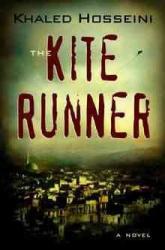
In an odd twist, I haven’t actually seen the movie this book was based on before I started reading it. Sure, I was aware The Kite Runner was a notable book, but I knew little about it other than the peripheral knowledge that comes from seeing an occasional movie trailer. About five years ago, I found this book for cheap at a bookstore and decided to pick it up on a whim. Now that I’ve finally read it, I’m glad I bought it those many years ago.
Unquestionably, it deserved the notoriety it received, as it is a well-written and engaging story.
I’ll admit that there is much I don’t know about the specifics of Afghanistan and Islam. This book certainly opened my eyes to a lot of things I had suspected, but could never confirm. First of all: men are awful. I’m a man myself, but I’m ashamed that so much of human misery is linked to the pride that distorts any of us into racists, sexists, and/or terrorists. While it was likely just a result of correctly depicting a patriarchal culture, The Kite Runner shines a harsh light on the hypocrisy of a fair number of men, most of whom only ascribe to these long-held “ideals” because it helps them maintain power and cover their insecurities.
The emotional heart of the story lies with the relationship between Amir and Hassan. By the end of the book, while I found the “twists” to be logical and almost predictable, they still elicited an emotional response from me. In fact, I almost would have thought this book to be a true story, were it not for the plot being just slightly too convenient at times. Sure, The Kite Runner made me mad that such thinking existed/still exists, but the fact that it caused me feel so strongly about it proves how effective its storytelling is.
A modern classic filled with timeless lessons, I give The Kite Runner 4.5 stars out of 5.
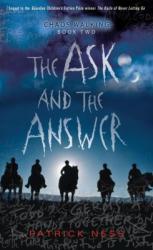
The Ask and the Answer is the second book of Patrick Ness's Chaos Walking series. In this continuation, we see the original characters Todd and Viola venture farther from home as they try to outrun the lies of their previous lives. This book is a wonderful mix of brilliant, sad, courageous, and painful. As soon as I finished this book, all I wanted to do was pick up the next one. Ness's writing style is unique, and the characters are relatable and real. The events that transpire throughout The Ask and the Answer provoke a wide range of emotions, which makes it engaging. I strongly recommend this book to anyone who has read the first Chaos Walking book, which is called The Knife of Never Letting Go.
Reviewer Grade: 11
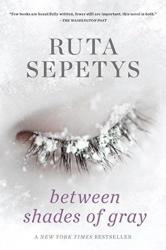
This is an amazing book. So stark and unforgiving, written exactly like Siberia and the arctic circle. This isn't an autobiography but it sounds like it could be. I have no doubt that Lina's circumstances happened to thousands during Stalin's reign. The writing was so realistic I could feel the wind and the cold and every terrible thing that came with it.
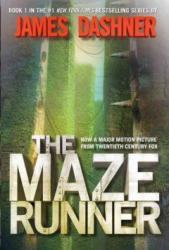
Partly due to the success of The Hunger Games , the Young Adult genre swerved into the survival/sci-fi/dystopian genres that also allowed The Maze Runner to have a ready and willing audience. With this being the case, I’d almost say The Maze Runner has more utopian sensibilities since the narrative encourages teamwork for survival, instead of a “winner take all” emphasis presented in The Hunger Games that valued selfish ambitions over communistic altruism. Plus, if you put 50 teenage boys in a box with no adult supervision, I think the logical conclusion would be more along the lines of Lord of the Flies instead of solving a deadly maze.
While the premise was interesting and allowed for a constant and steady pacing of inciting events, I felt there was not enough explanation in this first part of the trilogy, with very few questions being answered by the end and a lot of hand-waving to push the characters forward to a conclusion. In fact, having seen the movie adaptation, I was hoping the book was better suited to explain the ending, but it was equally as confusing. That being said, there were key elements in the book (like the telepathy) that didn’t make it into the movie.
Overall, the few main characters in The Maze Runner were interesting and unique, even if it took some of them two years to even figure out the simplest parts of the maze. Still, fear can be a huge hindrance toward progress, so I guess I understand their predicament. Additionally, despite using a euphemistic system of swears as part of the characters’ unique jargon, I couldn’t help but think that this book would have been a lot more inappropriate for a young adult audience if the actual swear words were used instead.
An interesting premise with engaging characters, I give The Maze Runner 3.5 stars out of 5.
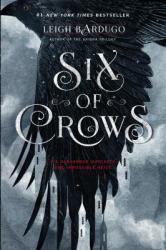
This takes place in the same universe as Bardugo's other series, The Grisha Trilogy, but with different characters. It follows Kaz Brekker, a criminal prodigy who is offered to pull off the heist of a lifetime: to break into the Ice Court (which has never been breached) to rescue a hostage. He puts together a team of five other outcasts, which includes Inej Ghafa, a silent spy, Nina, a Grisha, Matthias, a convict, Jesper, a gunslinger, and Wylan, a runaway, to help break into the Ice Court. Keep in mind, my description of the characters is incredibly weak and do them no justice.
While the heist itself is brilliantly written and thrilling to read with twists and turns, this is a very character driven story, and these are incredibly well written characters. They each have their own voices, thoughts, feelings, way of expressing emotions, motivations, and backstories.
They are so complex and feel so real. While this book takes a while to get into (due to some confusing terminology) I got the hang of the world building reasonably well, it just took a bit. This is a very unique world, and along with the characters, makes for a strong, compelling, beautifully written read that makes me desperate to find the next book.
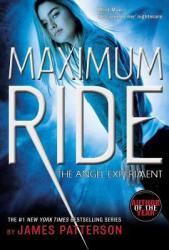
Maximum Ride: The Angel Experiment" by James Patterson is about a group of kids (called the Flock for their avian abilities) who were experimented on, but escaped. When one of their own is kidnapped, they go on a mission to get her back. I found the concept of this book interesting, and the characters had a lot of potential, but I feel there was an element missing from the story. Max, the protagonist, didn't seem to develop throughout the book. Nor did her love interest Fang. There were parts of this story that didn't make sense plot-wise either. But, I don't regret reading it
-- it's a fun adventurous story with lots of humor. I'd still recommend it regardless.
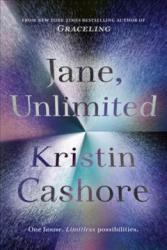
Jane's parents died when she was quite young, but she never felt like an orphan due to the amazing parenting skills of her quirky Aunt Magnolia. When Aunt Magnolia heads off to a photography expedition to Antartica never to return, Jane feels unmoored. She drops out of college and continues her dead end job at the university bookstore. When a surprise visit from an old friend results in an invitation to a mysterious mansion, Tu Reviens, Jane jumps on the chance to experience something new. Not only that, but Aunt Magnolia has told her to NEVER turn down an opportunity to visit the enigmatic island retreat, and Jane is eager to learn more about Magnolia's connection to the place.
That was a hard synopsis to write, as this is a book that somewhat defies description. The book starts off as kind of an Agatha Christie meets Jane Eyre meets John Fowler's the Magus, and then quickly turns into an almost Whitehead inspired choose your own adventure. Jane makes the same choice several times with different consequences each time, and the result is a compilation of strange, horrifying, thrilling and delightful stories and plot twists. Cashore's storytelling abilities are on full display here as she seamlessly weaves together a number of different genres. Character development, while it seems like it would be secondary, is also an integral part of the story. I loved all of the side characters (some of them almost eclipse Jane), and would read an entire book about almost any of them.
Jane, Unlimited is a book that I'll reread in a year or so, because there was a lot of intricate plotting and connections that I'm sure that I missed. I actually don't think I've ever read something quite like this, and that's saying something because I read a lot. The unique format of the book was attractive to me, though I can see it being frustrating for some readers; it's not until Jane makes her second choice that you really start to realize what is happening. If you read this book (and you should), I'd say just relax and enjoy the ride - it's a wonderfully weird one. I can't wait to see the art in the final copy, as I think that the right images before certain stories will add to the peculiar ambiance that permeates the book.
The ending felt both forced and rushed to me, but I think I'll enjoy it more the second time around (as I said earlier, this book practically demands to be reread). I almost loved this one, and now I really can't wait to see what Cashore comes up with next. 4.5 stars.
I received a free copy of this eBook from the publisher in exchange for an honest review.
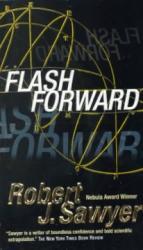
As time marches on, predictions of the future made in the past are tested against reality. In 1984, we didn't have George Orwell's dystopian government. In 2001, we didn't have Arthur C. Clarke's interplanetary travel. Sure, these authors did have a few interesting ideas that did come true, eventually. Still, they were writing well before the events in their books would come to pass. Robert J. Sawyer's Flashforward did not have that luxury. Written in 1999, Sawyer only imagines a future set a decade in the future. For those keeping track at home, Flashforward takes place in 2009, with a vision of a future 21 years ahead of that. Since 2009 has come and gone, there were a few things Sawyer got right, but many he could not have predicted.
The crux of this story is similar to that explored by Machine of Death: everyone in the world gets a glimpse of their future in 2030, thus causing everyone to react based on what they saw. Some were encouraged by what they saw, others despondent and suicidal. The people who had negative visions hoped the future could change, especially if their lives were on the line. Many of the "effects" of the look into the future were logical conclusions, which added an amount of interest to the story but with a cheap cop-out to keep from killing off all the characters. With all the different characters and POVs, it was somewhat difficult to follow along each time the
focus changed, since there was nothing to indicate a change of view.
I also appreciated the conversation this book had in regards to science and the many existing theories about the future. While this exploration of science also included the discovery of the Higgs Boson (which didn't happen until 2012), I was continually distracted by the narrator's pronunciation of "CERN," which sounded more like "sairn" instead of how I thought it was pronounced ("sirn"). I did appreciate the narrator's ability to mimic multiple accents, but that one pronunciation threw me.
A recent book about the "future" that gets a few things correct, I give Flashforward 3.5 stars out of 5.
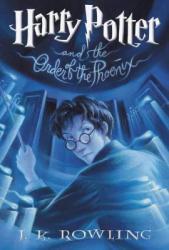
If you have not read this book please...DO! This is a fantasy/adventure book that is unpredictable. It does have a cliffhanger at the end. It is the fifth book out of a seven book series. This book will make a lot more sense if you read all the books in order. While some parts of the story may be relatable to the reader (teen drama and romance) other parts aren't relatable to the reader. It is one of the best books I have read this year so far!
Reviewer Grade: 8th
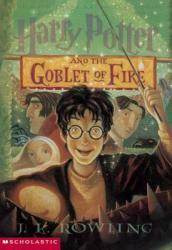
If you love fantasy/adventure books PLEASE READ THIS BOOK! This is such an awesome book! It is not predictable and contains a cliffhanger at the end.
Some of the characters’ drama is relatable to the reader (such as the teenager dating scene). This is the fourth book in a seven book series. The books will make a lot more sense if you read the books in order. This was definitely one of the best books I have read this year!
Reviewer Grade: 8th
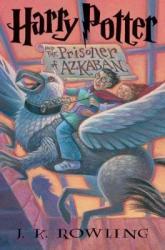
“Harry Potter and the Prisoner of Azkaban” is an amazing book to read. It is a fantasy book with some adventure in it. It is the third book in a seven book series. The story will make a lot more sense if you read the books in order. This book is not predictable and does not have a cliffhanger. However, there are some parts of the book that will leave you on the edge of your seat in suspense. Some of the characters are relatable to the reader but the story isn't at all. This was one of the best books I have ever read!
Reviewer Grade: 8th
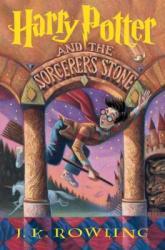
“Harry Potter and the Sorcerer’s Stone” is a great book to read. This is the first book in a seven book series. If you like fantasy and adventure books this is a great book for you! This book is completely unpredictable with many twists and turns. Some of the characters are relatable to the reader but the story isn’t relatable at all. This is one of the best books I have read all year!
Reviewer Grade: 8th
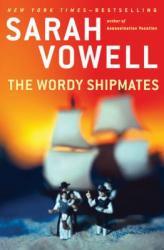
This book takes a look at the lives of the early Puritans that crossed over to make a better life for themselves in America. While that topic doesn't immediately scream, "Read me!" I was forced to read it for school, and I actually really enjoyed myself. The author, Sarah Vowell, has this dry sense of humor that makes her long explanations about the technicalities of the religion and of how society worked back then interesting while still informing you of the topic and the message she is trying to put across. I think whether I would recommend this book depends on who wants to read it. If you are someone who is looking for a non-fiction novel that gives a different perspective to what is generally taught in history classrooms, I say go for it. If not, you might still enjoy it simply because the author is hysterical, but that might not be the case if you are not interested in learning about the actual topic.
Reviewer: Grade 11
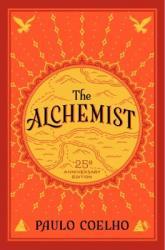
I first picked up this book when I was in maybe 6th grade and I absolutely hated it, I had no clue what it was about and why it was an "adventure" book that didn't really have a lot of action in it. Having picked up this book again this year (and actually finishing it this time) I can honestly say this story made me want to reevaluate how I have lived my entire life. The story follows a boy named Santiago as he searches for his personal legend, in other words, the reason he is alive, his purpose. This is a book that makes you want to go out and chase your dreams no matter what, and it is beautifully written. The novel takes you through the ups and downs of life and proves that sometimes your hard work is worth it in the end, whether you accomplish what you set out to do out not. I think this is a book where the messaged can’t be fully realized until your a little bit older, but to anyone struggling with what they want to do in life or even just where to start, this book is amazing, it made me feel like anything is possible. Just read it, I promise it’s good.
Reviewer: Grade 11
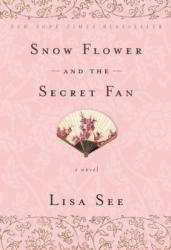
In the midst of desperately trying to find a historical fiction novel to read for my English class, I picked up Lisa See’s book and immediately fell in love. This book is told through the main character, Lily, as she recalls her past as an older woman. As a young girl, Lily was promised to her laotong, Snow Flower. To be a laotong in China means to be best friends, to be closer than sisters, and to never leave each other’s sides. As Lily grows up throughout the book, she recalls her stories of love and loss that shaped her entire life, most importantly in regards to Snow Flower. This book gives an important look into the lives of woman in early China, about the standards they were held to as far as their appearance goes, and the strict rules they had to follow just to live a "fulfilled" life. For anyone who is interested in learning more about the Chinese culture or simply reading a beautiful story of love and friendship, I highly recommend. (Not gonna lie, I cried at the end, this book is actually amazing).
Reviewer: Grade 11
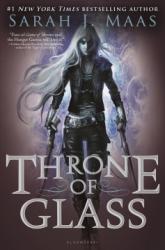
Throne of Glass does not fulfill the promises it makes on the back of its dust jacket. Celaena is an assassin, the best assassin in the world, who got a life sentence of hard labor in a mine. But Celaena is nothing like an experienced or smart assassin. She’s reckless, overly arrogant, easily frustrated, and vain; she would rather gape at herself wearing fancy dresses in the mirror, sleep in, eat candy, get angry over her lack of skill at billiards, or read all night than worry over a competition that she knows her life depends upon. A good protagonist could have some of these features, but it is just illogical for someone in her position. In fact, the book soon starts skipping over the competitions entirely to focus more on Celaena, who does nothing to seem either cool or likable. She never acts like an assassin or like her supposed inspiration character, Cinderella. Celaena has very little to no humility, grace, or compassion. Celaena is neither a compelling assassin nor a charming Cinderella.
Reviewer Grade: 9
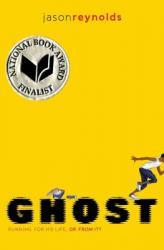
Jason Reynolds (author) + Guy Lockhard* (narrator) = Magic
Castle Cranshaw, aka Ghost, has been running from things his whole life: his violent father, the consequences of altercations at school with a bully, and most of all, the anger that's been building up inside him. So Ghost has a ton of natural talent, which he puts to use when he inadvertently impresses the coach of a local track team. After the coach begs him to join, and Ghost reluctantly agrees, he begins to see that he might be happier if he runs towards something instead of away from everything.
I listened to this audiobook, and it was excellent. I really struggle with middle grade fiction, as I oftentimes have trouble identifying with the characters (I mean, middle school was a loooooooong time ago), but Reynolds took me right back to the thick of it. In a good way. The day-making/ruining things your classmates would say, interactions with adults in positions of authority, and not really being sure about who you are and what you want in life - Reynolds nails it all. Moreover, Ghost is just a straight up likable character, even as he makes poor decision after poor decision. We really get to see him grow over the course of the novel, and even as he does the wrong thing, his heart is usually in the right place. I loved his relationship with his mother, and later, with Coach. There aren't always positive adult relationships in fiction for young people, and so it was nice that Ghost had so many adults that he could turn to. The secondary characters were just as dynamic, and also had very serious problems of their own to deal with. I'd read a book about any of them. Shoot, I wanted to adopt most of them. As a runner myself (although I'm not competitive and do longer distances), I really liked that the book was about track as it's not a sport we read or hear a lot about. There's a bit about fartleks that was pretty hilarious, and I think runners (Land Sharks, anyone?) will find a lot to love here.
If you are looking for a book to listen to or read with your kids, this is a great one. There are loads of teachable moments, and it is ultimately a heartwarming tale of self-discovery. I couldn't get enough of it - 5 stars.
*Shout out to Guy Lockhard - he narrated the other Jason Reynolds book that I've listened to (All American Boys), and he is a fantastic narrator. It seems like Reynolds thinks so as well, because it looks like Lockhard will be narrating Reynolds' recently released book about Spiderman Miles Morales. I may have just put that on hold...
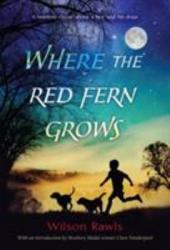
I think that this book is amazing and shares a wonderful message about how a boy has always wanted hunting hound dogs and when he saw an opportunity to get one holds on and wont let go. The author shares wonderful stories of his life with the dogs and then when one dog dies the other won't eat drink or rest and sleep it uses the last of its strength to crawl up to the other dogs grave and when it dies they bury the other dog there. And red fern then grows on top of it and red fern symbolizes that an angel puts red fern on top of the special things who die. And red fern is very rare.
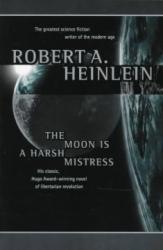
Certainly well ahead of his time, Robert A. Heinlein remains one of the definitive writers of the science fiction genre, even today. In The Moon is a Harsh Mistress, Heinlein covers such topics as artificial intelligence, extraterrestrial colonization, and interplanetary warfare. Even today, most of these subjects are accurately depicted in the narrative, even if some of the technology has advanced past where it was thought to be in 1965. Part of me is almost jealous at Heinlein’s ingenious use of Earth’s gravity well, and I know any attempt I might make to replicate the idea will merely seem derivative in comparison.
As is the case with some of his other works, Heinlein makes many socio-political statements via his writing. His stance on taxes, revolutions, and independent governing bodies is a critical section of the plot in The Moon is a Harsh Mistress, and I can certainly see the theoretical benefits he puts forth in this context. That being said, his views on polygamy and polyamorous relationships are certainly on display again, with his previous work, Stranger in a Strange Land exploring these themes in greater detail. I can only assume the "free love" culture of the 1960's shaped these opinions.
Overall, the book wasn’t quite what I expected. The initial chapters made me hope the plot would center on the relationships between man and artificial intelligence (AI). If anything, AI is shown to be a powerful tool that can influence society in ways we can’t even begin to comprehend. At the very least, the main character was quite entertaining, if not hard to understand at times with his “accent.” If we do eventually colonize the moon, I can hope we do so peacefully and in a way that doesn’t lead to an uprising of its native inhabitants. After all, I do like living in a Colorado Springs devoid of meteoric bombardment.
A well-thought out sci-fi story decades ahead of its time, I give The Moon is a Harsh Mistress 4.0 stars out of 5.
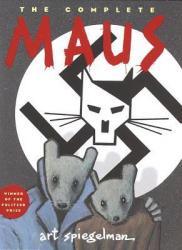
Maus is a two-part graphic survival story of World War II in Auschwitz. It is a true story of Art Spiegelman's father, who was a Polish Jew and was put into Auschwitz, one of the biggest concentration camps in Nazi Germany.
The comic book style is an amazing way to learn history, as it enforces themes through images and tells a story rather than spitting facts, like some history books do. The author portrays different nationalities as different animals, which stands as an ongoing theme in the book: The Jews are the mice and the Nazis are the cats. This makes for an easy relation between the two (cats hunt mice). I am not a huge fan of learning history for the sake of learning history, but I adored this book. I found it intriguing on a very personal level, but also extremely informative. I strongly recommend Maus.
Reviewer Grade: 11



 Ruth Holley Library will be temporarily closed for approximately one week starting Mon., Dec. 2 to complete roof repairs.
Ruth Holley Library will be temporarily closed for approximately one week starting Mon., Dec. 2 to complete roof repairs.